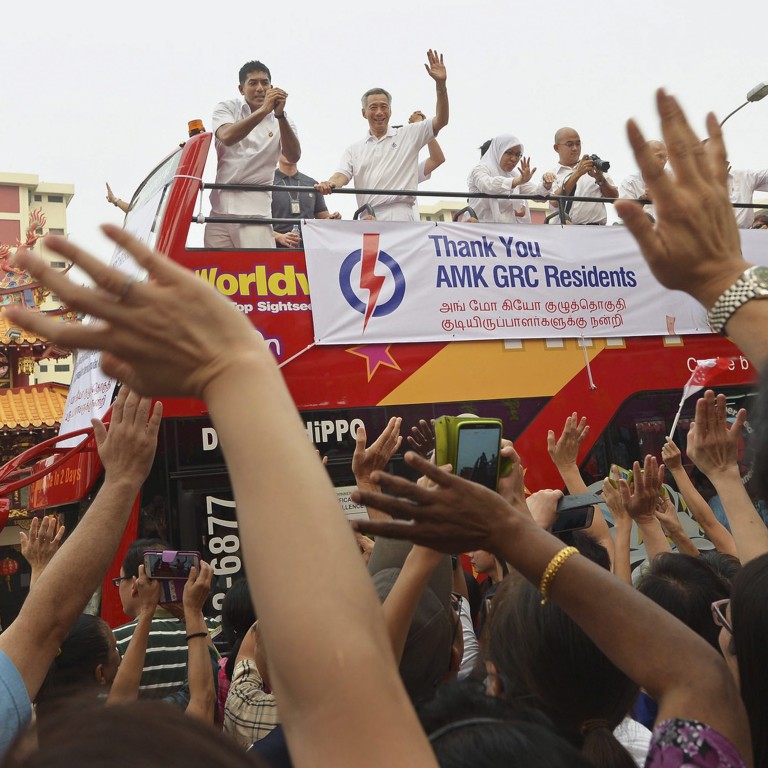
Lessons for Hong Kong from Singapore's poll
While the incumbent People's Action Party (PAP) has retained its 56-year grip on power as expected, this year's general election in Singapore has been the most competitive in its history.
Under the governance of the PAP, Singapore's gross domestic product has risen from US$400 per capita to over US$55,000 in the past 50 years.
However, recent opposition and protests seem to suggest that Singaporeans care about much more than just economic growth, which is an intriguing issue to look into, especially for us Hongkongers, who are holding mass rallies against authority more often than ever.
With a major population bump of 32 per cent in the last 10 years, localism is rising among Singaporeans as the increase of immigrants is generally believed to be the cause of depressed wages, overcrowded public transport and soaring property prices.
With the PAP often blamed to have turned Singapore into a money-making machine, opposition parties focus more on tightening the growth in the number of foreigners to ensure access to education and healthcare services for the locals.
Apart from the emergence of localism, the dissatisfaction with the current authority has also contributed to the fade in the PAP's power.
A survey by local research firm Blackbox shows the "overall government satisfaction index" among residents is just 42 per cent for the cost of living, 53 per cent for housing affordability and 57 per cent for public transport.
The disappointment in the current situation has grown into a decreasing trust in the government.
Finally, social media encourages Singaporeans to share their political views and to discuss political issues with other citizens.
Inasmuch as mainstream media and new outlets are under the ironclad grip of the government, Facebook and Twitter have been serving as a political platform, such as in the calls for teen blogger Amos Yee to be freed when he was jail. His release in July demonstrated the growing influence of online social media on politics in Singapore.
Regardless of why the PAP is losing its edge, there is little doubt Singaporeans are starting to recognise the vulnerabilities that come with a one-party dominant system. Hongkongers should definitely cherish the divergent spectrum in the political ideologies that we still have in Legco.

